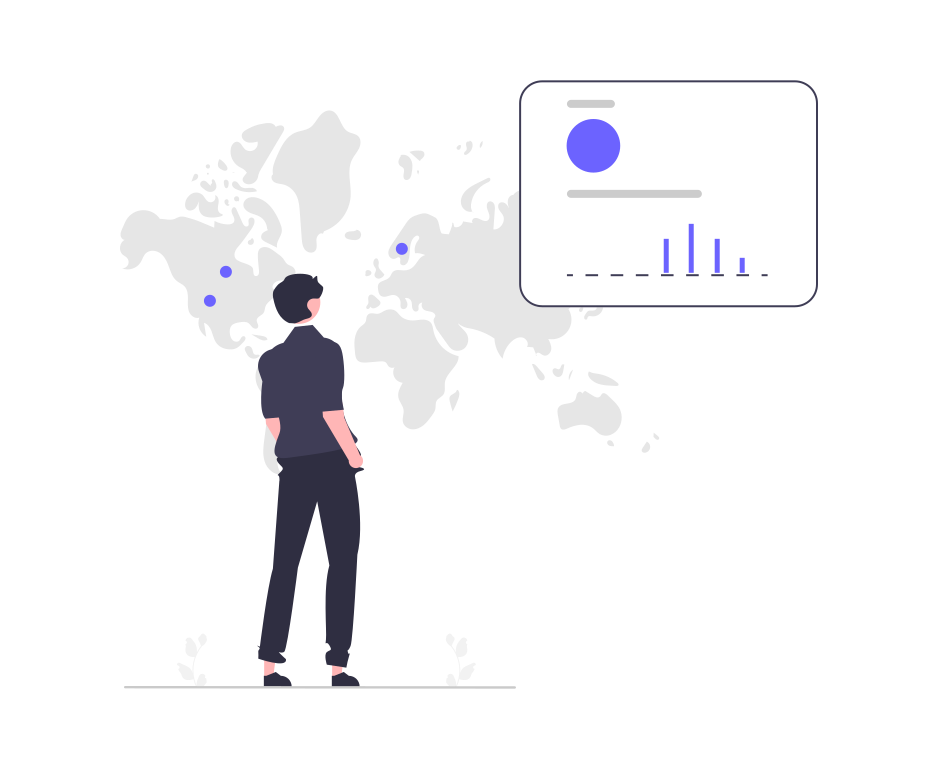In today’s digital age, marketers leverage advanced technologies to create highly personalized experiences for users. Geo-targeted content personalization is one such technology that tailors content based on a user’s geographic location, enhancing relevance and engagement. However, this practice raises significant data privacy concerns. Balancing personalization with data privacy is crucial to maintain user trust and comply with legal standards. This blog explores the intersection of data privacy and geo-targeted content personalization, highlighting best practices for ethical and effective marketing.
Understanding Geo-Targeted Content Personalization
Geo-targeted content personalization uses data about a user’s physical location to deliver customized content. This technique can range from simple practices, like displaying local weather updates, to more complex ones, such as suggesting nearby restaurants or region-specific promotions. By understanding a user’s location, businesses can create more relevant and engaging content, potentially increasing conversion rates and customer satisfaction.
Benefits of Geo-Targeted Content Personalization
- Increased Relevance: Content tailored to a user’s location can provide more pertinent information, enhancing the user experience.
- Higher Engagement: Users are more likely to interact with content that is directly relevant to their immediate surroundings.
- Improved Conversion Rates: Personalized offers and information can lead to higher conversion rates, as users find the content more appealing and useful.
- Enhanced Customer Satisfaction: Providing relevant content can improve customer satisfaction and loyalty, as users feel understood and valued.
The Importance of Data Privacy
While geo-targeted personalization offers many benefits, it also raises significant data privacy issues. Collecting and using location data without user consent can lead to mistrust and potential legal repercussions. Data privacy involves ensuring that users’ personal information is collected, stored, and used in ways that respect their privacy and comply with regulations.
Key Data Privacy Concerns
- User Consent: Collecting location data without explicit user consent is a major privacy violation. Users must be informed and agree to data collection practices.
- Data Security: Ensuring that collected data is securely stored and protected from unauthorized access is crucial.
- Transparency: Businesses must be transparent about their data collection and usage practices, providing clear privacy policies.
- Compliance with Regulations: Adhering to data protection regulations such as GDPR and CCPA is essential to avoid legal issues and penalties.
Balancing Personalization and Privacy
Balancing the benefits of geo-targeted personalization with the need for data privacy requires careful strategy and implementation. Here are some best practices for achieving this balance:
Obtain Explicit Consent
Before collecting any location data, businesses should obtain explicit consent from users. This can be done through clear, easy-to-understand consent forms that explain why the data is being collected and how it will be used. Providing users with control over their data and the ability to opt-out at any time is also essential.
Use Anonymized Data
Whenever possible, businesses should use anonymized data to reduce privacy risks. Anonymization involves removing personally identifiable information from the data, ensuring that users cannot be easily identified. This allows businesses to gain insights and personalize content without compromising user privacy.
Implement Strong Data Security Measures
Protecting collected data with strong security measures is crucial. This includes using encryption, secure data storage solutions, and regularly updating security protocols to prevent unauthorized access and data breaches.
Be Transparent with Users
Transparency builds trust. Businesses should be open about their data collection and usage practices, providing detailed privacy policies and regular updates on any changes. Users should know exactly what data is being collected, why, and how it will be used.
Comply with Legal Regulations
Adhering to data protection regulations such as the General Data Protection Regulation (GDPR) and the California Consumer Privacy Act (CCPA) is not just a legal requirement but also a best practice for ethical marketing. These regulations set high standards for data privacy and provide guidelines for businesses to follow.
The Future of Geo-Targeted Personalization and Data Privacy
As technology evolves, the methods for personalizing content and ensuring data privacy will continue to develop. Innovations in artificial intelligence and machine learning will offer more sophisticated ways to personalize content while protecting user privacy. Privacy-enhancing technologies (PETs) such as differential privacy and federated learning are also gaining traction, offering new ways to balance personalization with privacy.
Privacy-First Personalization
Privacy-first personalization is an emerging approach that prioritizes user privacy while still delivering personalized experiences. This approach involves designing personalization strategies that minimize data collection, use anonymized data, and prioritize user consent and control.
Ethical Data Practices
Businesses are increasingly recognizing the importance of ethical data practices. This involves not only complying with legal regulations but also adopting a user-centric approach to data collection and usage. Ethical data practices can enhance brand reputation, build user trust, and drive long-term success.
Conclusion
Geo-targeted content personalization offers significant benefits for businesses and users alike, providing relevant and engaging content that can enhance user experience and drive conversions. However, it is essential to balance these benefits with the need for data privacy. By obtaining explicit consent, using anonymized data, implementing strong security measures, being transparent, and complying with regulations, businesses can achieve this balance and build trust with their users.


